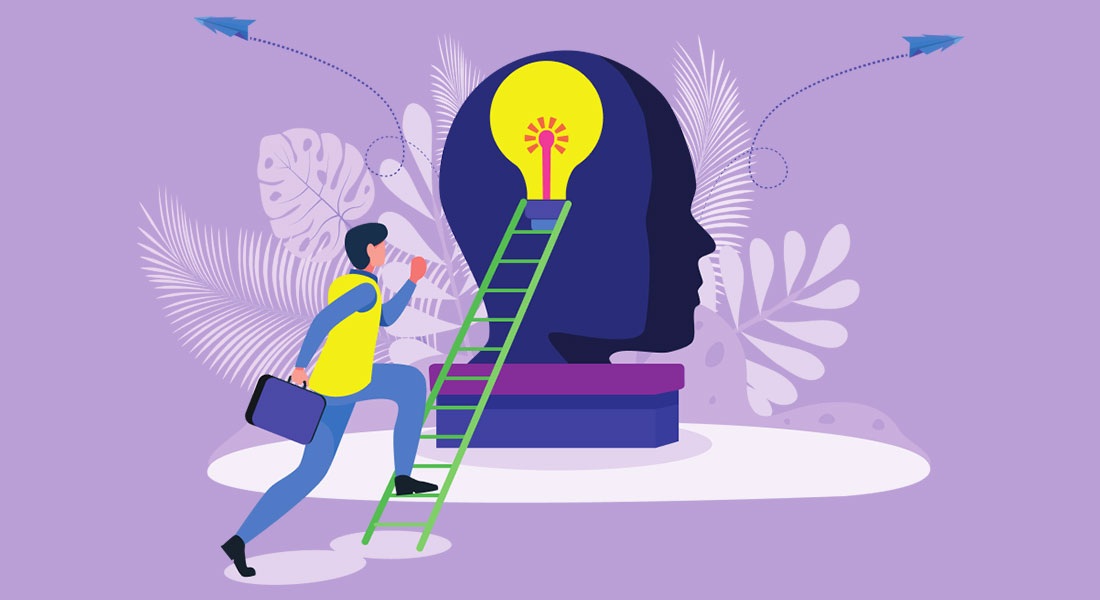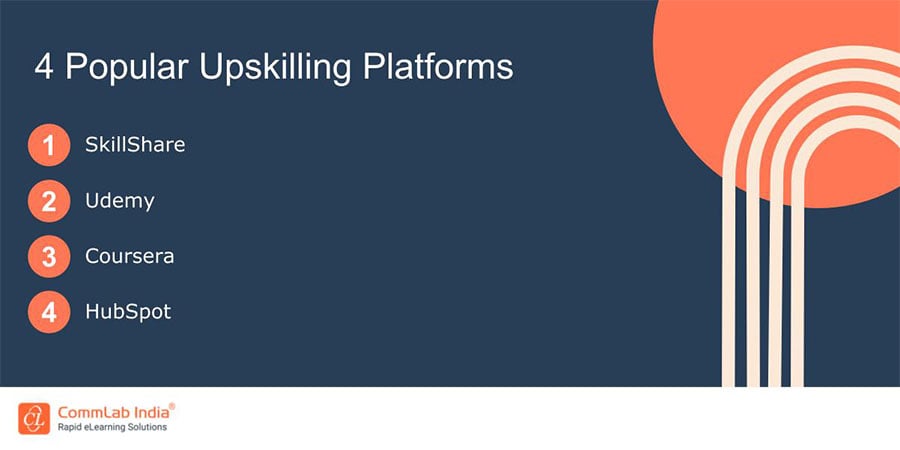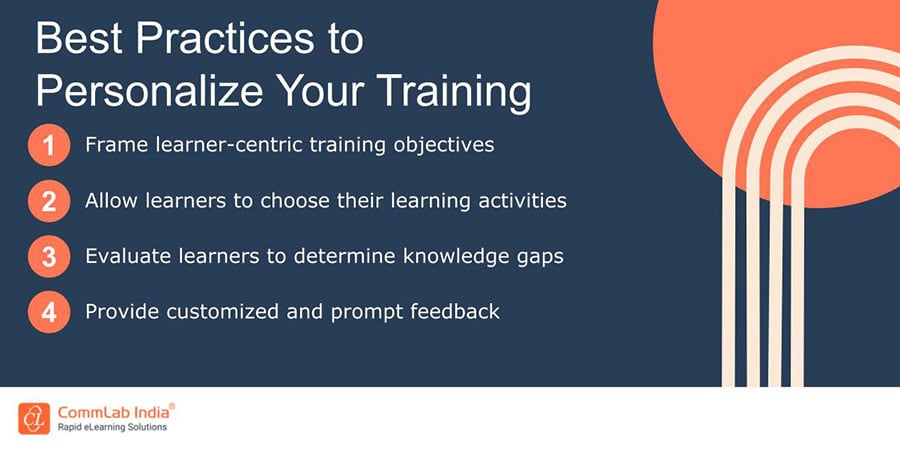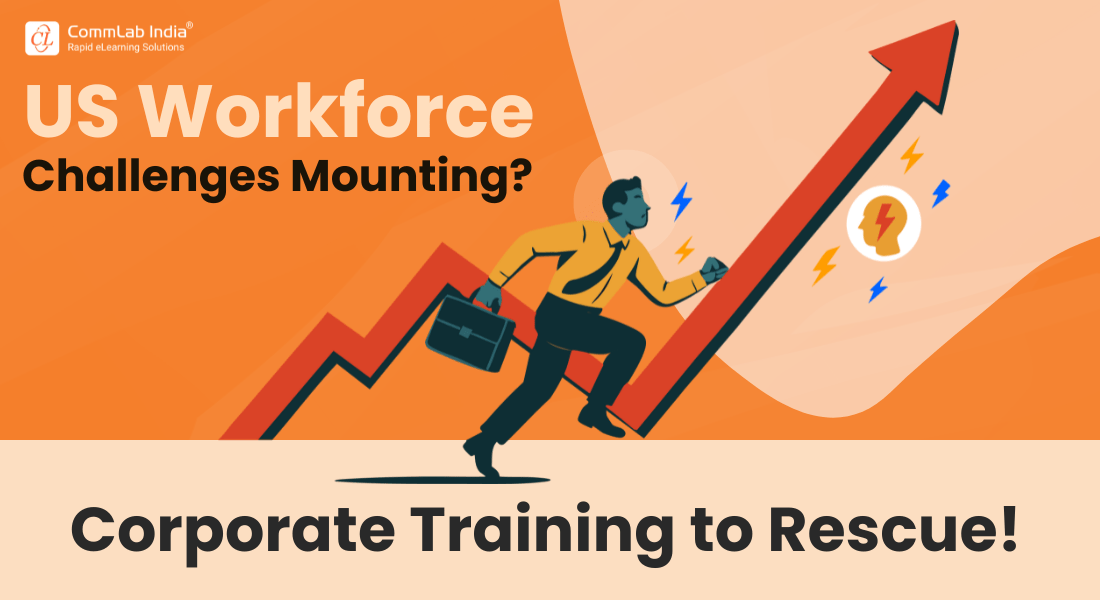The Smart Path to Success: How AI Drives Upskilling and Reskilling Triumphs

In an era marked by rapid technological advancements and evolving market dynamics, the corporate world finds itself in a constant state of flux. With each innovation, the demands placed upon employees shift, necessitating a continuous process of learning and adaptation. This has given rise to the concepts of upskilling and reskilling – the twin pillars upon which a thriving workforce rest. In this dynamic landscape, Artificial Intelligence (AI) has emerged as a game-changing tool, revolutionizing the way organizations approach upskilling, and reskilling initiatives. This blog delves into our symbiotic relationship with AI and explores how AI-driven strategies are reshaping the future of workforce development.
Upskilling and Reskilling of Your Workforce has Become More Personalized Than Ever!
Here’s how AI can help you ease the process -
- Personalized learning trajectories
- Intelligent content curation and recommendation
- Immersive simulations and practical training
Read on to explore these advantages in detail.
The Imperative of Upskilling and Reskilling in the Corporate Sphere
The relentless march of technology has ushered in an era of unprecedented change, reshaping industries, and redefining the very nature of work. As automation, artificial intelligence, and other disruptive technologies continue to revolutionize business processes, the skills that were once the bedrock of success are rapidly becoming obsolete. This shifting landscape underscores the urgent need for upskilling and reskilling within the corporate world.

1. Unveiling the Skills Gap Crisis
The widening chasm between the skills possessed by the current workforce and the skills demanded by emerging job roles is commonly referred to as the "skills gap." This gap has become a defining challenge for organizations seeking to maintain a competitive edge. Traditional skill sets are no longer sufficient in a world where digital fluency, data analysis, and adaptability are becoming the norm. Employees who were once experts in their fields find themselves faced with the prospect of falling behind, necessitating a radical shift in the way we approach workforce development.
2. Economic Advantages
Beyond the moral imperative of supporting employees in their professional growth, upskilling and reskilling have clear economic advantages. Studies have shown that organizations that invest in employee development tend to outperform their competitors. Well-trained and adaptable employees are better equipped to navigate change, seize opportunities, and contribute to innovation. This not only enhances an organization's productivity but also translates into increased ROI, revenues, and profitability.
→ Download eBook Now: The State of Learning
3. Navigating Employee Retention
Employee turnover is a costly concern for organizations. High-performing employees who feel stagnant or undervalued are more likely to seek opportunities elsewhere. However, a strategic focus on upskilling and reskilling can dramatically improve employee satisfaction and retention. When employees see that their organizations are committed to their growth and offer pathways to develop new skills and advance their careers, they are more likely to remain loyal and motivated contributors to the organization's success.
AI's Transformational Impact on Upskilling and Reskilling
1. Personalized Learning Trajectories
Traditional one-size-fits-all training programs are ill-suited to addressing the diverse learning needs of today's workforce. AI-powered skills assessments provide a dynamic and accurate picture of an employee's strengths and weaknesses. By analyzing data from a range of sources, including completed courses, performance metrics, and skills tests, AI generates a comprehensive skills profile. This not only helps identify skill gaps but also provides insights into an individual's learning preferences and aptitudes.

Adaptive learning platforms take this personalization a step further by tailoring learning pathways to everyone’s unique needs. Through continuous monitoring and analysis, AI algorithms adjust the difficulty, content, and pacing of learning materials to match the learner's progress. This dynamic approach ensures that employees are neither overwhelmed nor under-challenged, resulting in higher engagement and improved learning outcomes.
2. Intelligent Content Curation and Recommendation
In an era of information overload, finding relevant and timely learning resources can be a daunting task. AI-powered content curation and recommendation systems alleviate this challenge by sifting through vast repositories of information to deliver precisely what each learner needs. These learning management systems(LMS) leverage machine learning algorithms to analyze an individual's learning history, skill gaps, and current trends in the industry to recommend targeted resources. The result is a streamlined learning experience that maximizes efficiency and relevance.
Furthermore, AI ensures that learning content remains up-to-date in a rapidly evolving business landscape. As new technologies, best practices, and market trends emerge, AI can identify and integrate these changes into the curriculum, ensuring that employees receive the most current and relevant information.
3. Immersive Simulations and Practical Training
AI-driven technologies are revolutionizing hands-on training through immersive simulations. Virtual reality (VR) and augmented reality (AR) technologies create realistic and interactive environments in which employees can practice and refine their skills. For instance, in industries such as healthcare, aviation, and manufacturing, employees can participate in simulated surgeries, pilot flights, or assembly line processes. These simulations offer a safe space for experimentation and learning from mistakes without real-world consequences.
Moreover, AI-powered simulations can be customized to cater to different skill levels and learning objectives. By analyzing user interactions and performance data, AI adapts the simulation's complexity and challenges, ensuring a tailored and engaging learning experience.
Overcoming the Hurdles: Implementing AI-Driven Learning with Finesse
While AI offers transformative possibilities, it also presents challenges that demand thoughtful consideration. Data security and privacy are paramount, requiring organizations to adopt ethical data handling practices and comply with regulatory frameworks. Balancing automation with human interaction is equally critical. While AI streamlines learning, the human touch is indispensable for fostering emotional intelligence and interpersonal skills.
Continuous monitoring and algorithm refinement ensure that AI systems evolve to meet evolving needs. Iterative improvements based on user feedback create a dynamic learning ecosystem that remains attuned to organizational goals.
Navigating the Future: AI-Driven Upskilling and Reskilling on the Horizon
As we peer into the future, the symbiotic relationship between AI and corporate learning is poised for further evolution. Strategic alignment is paramount, with AI initiatives intricately woven into organizational objectives. Cross-disciplinary collaboration between learning experts and AI specialists ensures holistic solutions that cater to diverse learning needs. Continuous evaluation and enhancement mechanisms facilitate the refinement of AI-powered learning experiences.
A continuous learning culture, underpinned by AI, will become integral to organizational DNA. AI's integration into talent management, spanning performance evaluation, career mapping, and succession planning, will redefine the employee lifecycle. Multidimensional learning experiences, leveraging AI for immersive and personalized journeys, will pave the way for skill development that transcends traditional boundaries.
Wrapping Up!
In the modern corporate work environment, upskilling and reskilling have emerged as imperatives for success. AI, a beacon of technological prowess, has ushered in a new era of learning. Through personalized learning trajectories, intelligent content curation, immersive simulations, and more, AI is reshaping the way employees acquire and apply skills. The time is ripe for businesses to embrace the power of AI and embark on a journey of transformation, one skill at a time. To understand more about the state of learning in the coming years, here’s an eBook you should not miss out on.




![7 Ways to Upskill and Reskill the Manufacturing Workforce [Infographic]](https://blog.commlabindia.com/hubfs/blogs/manufacturing-sector-digital-upskilling-infographic%20.jpg)
